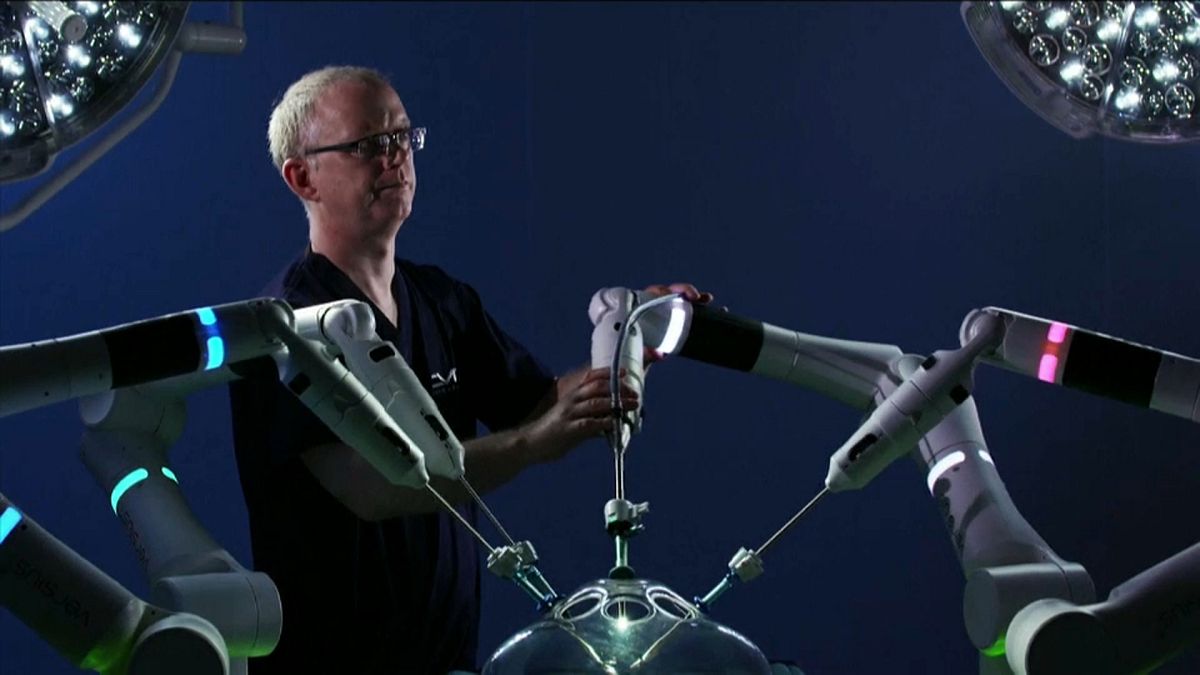The NHS is developing a £50 million framework for robotic surgical equipment. Surgeons use computers to operate four robotic arms, which are used to control instruments.
Surgical robots are set to join medical teams across the UK, in a move its makers claim will revolutionise operating theatres.
The UK's National Health Service (NHS) is developing a £50 million (€56.3m) framework for robotic surgical equipment, reflecting how artificial intelligence is changing the way doctors treat patients.
"It's quite exciting to see robotic techniques rolled out, first of all from an ergonomic point of view, just from a surgeon's point of view," said consultant Jonathan Morton.
Consultants such as Morton are among a handful of surgeons trying out the new technology before it's rolled out to hospitals across the UK.
He explained: "You can set the system up far better to mean that the stresses on the body are less... which will enable us to potentially push the boundaries of surgery again, just as keyhole surgery did in the nineties."
Surgeons use computers to operate four robotic arms, which are used to control instruments.
The UK's Royal College of Surgeons says robots won't replace doctors in hospitals. They say doctors will remain in control of operations.
"The robot is not going to be taking over what surgeons do," said Richard Kerr from the Royal College of Surgeons.
"The robot will become an integral part of the tools that surgeons use to carry out operations on their patients. Now, maybe in the long-distance, 20 years down the line, there may be some aspects of surgery that are delivered by robots."
The manufacturers behind the technology, Cambridge-based CMR Surgical, claim it should allow more patients access to less invasive surgery.
The company's chief medical officer, Mark Slack, said: "We have built a system that will enable many, many more patients to get minimal-access surgery and all the benefits that that brings for them in terms of reduced complications, reduced pain, quicker return to work etc. The aim is to put this system in as many hospitals worldwide as we can."


